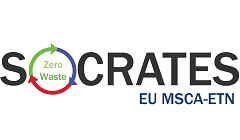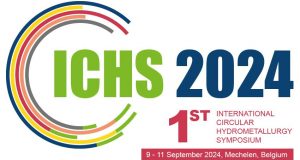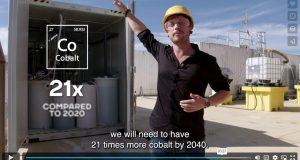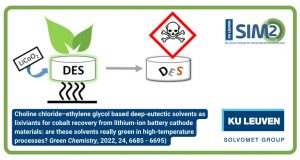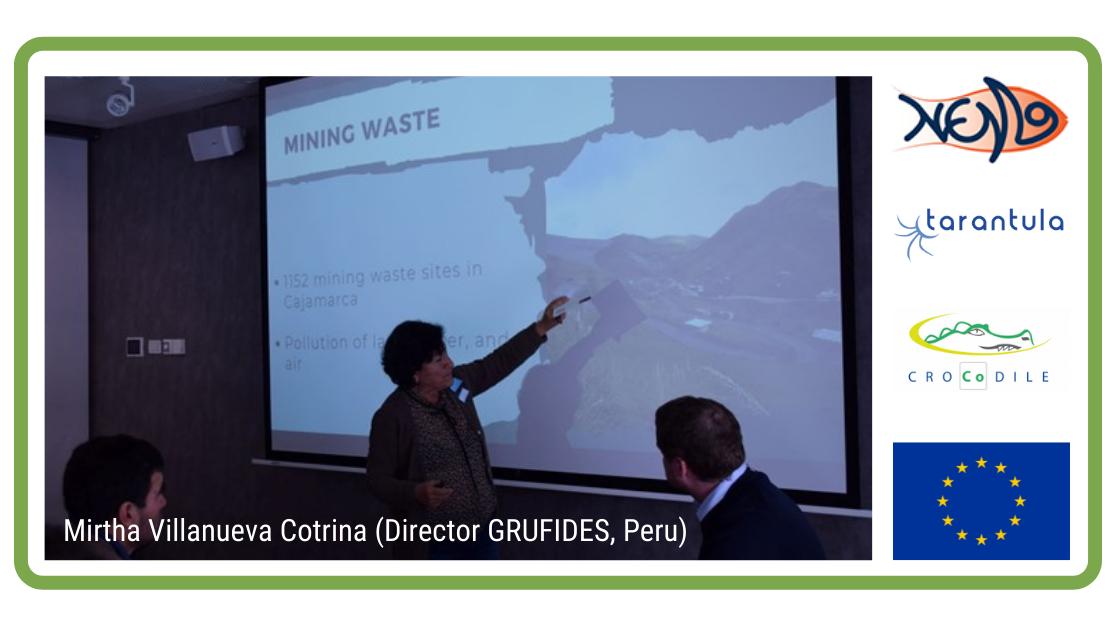SIM² KU Leuven researchers from the SOLVOMET Group developed new leaching solutions to dissolve metals, based on non-volatile ionic liquids. These compounds proved to be sufficiently strong oxidizers to dissolve gold, forming a safer alternative for the aggressive aqua regia. The synthetic procedures of these trihalide ionic liquids and their use as leaching agents for metals was published in Green Chemistry. (PTJ, 15/11/2018)
Trihalide ionic liquids
Dissolving metals is an essential first step in the recycling of metals, but dangerous conditions (high temperatures, volatile solvents, strong acids,…) are often required. To tackle this problem, a new form of metallurgy called ‘solvometallurgy’ is trying to overcome many of these issues by using non-aqueous solvents and lower temperatures for metal processing. Ionic liquids fit this description because they are non-volatile liquids at room temperature that can contain high amounts of metals.
These solvents consist completely out of cations and anions (much like NaCl) but due to their bulky structure they do not crystalize as easily, rendering a liquid at room temperature. Their green properties like non-volatility and high metal loading originate from the fact that they consist of ions. Besides the success of ionic liquids in separating metals, the leaching of metals is still often performed using strongly acidic solutions, or volatile organic compounds (VOCs).
To be able to leach the metals in these non-volatile ionic liquids as well, trihalide ionic liquids were investigated. These are formed by the addition of halogens to halide ionic liquids where they react towards trihalide anions, which become part of the ionic liquid and are stabilized by the cation of the ionic liquid. In this way, the halogens are stable enough to become non-volatile, but they remain reactive enough to dissolve metals. This was accidently confirmed when measuring the viscosity: a gold coated ball used in these measurements dissolved when submerged into the sample.

Figure 1: corroded gold coating (left) versus fresh gold coated ball (right) used in viscosity measurements.
Various trihalide ionic liquids were synthesized using either chlorine, bromine or iodine. This range of trihalide ionic liquids was characterized in order to map the properties of these new compounds. Afterwards, different metals were dissolved in these new and non-volatile solvents. Due to the highly oxidizing nature of the trihalides, almost all tested metals dissolved, including gold. Only more noble metals like platinum and rhodium resisted the ionic liquids.
Green chemistry
With this research the SOLVOMET group wants to investigate safer and more efficient ways of metal recycling. By using these trihalide ionic liquids, metals might be selectively leached from their surrounding matrix. This would require less chemicals, which makes for greener processes, on top of the obvious benefits of using non-volatile solvents. Follow-up research will include the dissolution of various kinds of waste with high metal content, followed by the separation of the metals in order to fully recycle them.
Full reference paper
Arne Van den Bossche, Elise De Witte, Wim Dehaen and Koen Binnemans, Trihalide ionic liquids as non-volatile oxidizing solvents for metals, Green Chemistry, (2018), 20, 3327, DOI: 10.1039/C8GC01061G
Biography Arne Van den Bossche
 Arne Van den Bossche joined the group of Prof. Binnemans in 2014 for his master thesis, investigating better synthetic pathways for imidazolium ionic liquids. Enthusiastic about ionic liquids, he started his PhD in September 2015, investigating the use of trihalide ionic liquids in the recycling of critical metals, and was given a PhD grant by the Flemish government (FWO). His main interests include organic synthesis, solvometallurgy, and the transition towards a circular economy.
Arne Van den Bossche joined the group of Prof. Binnemans in 2014 for his master thesis, investigating better synthetic pathways for imidazolium ionic liquids. Enthusiastic about ionic liquids, he started his PhD in September 2015, investigating the use of trihalide ionic liquids in the recycling of critical metals, and was given a PhD grant by the Flemish government (FWO). His main interests include organic synthesis, solvometallurgy, and the transition towards a circular economy.
Acknowledgements
The authors would like to thank the Research Foundation Flanders (FWO) for funding (PhD grant to Arne Van den Bossche: 1S04216N).
